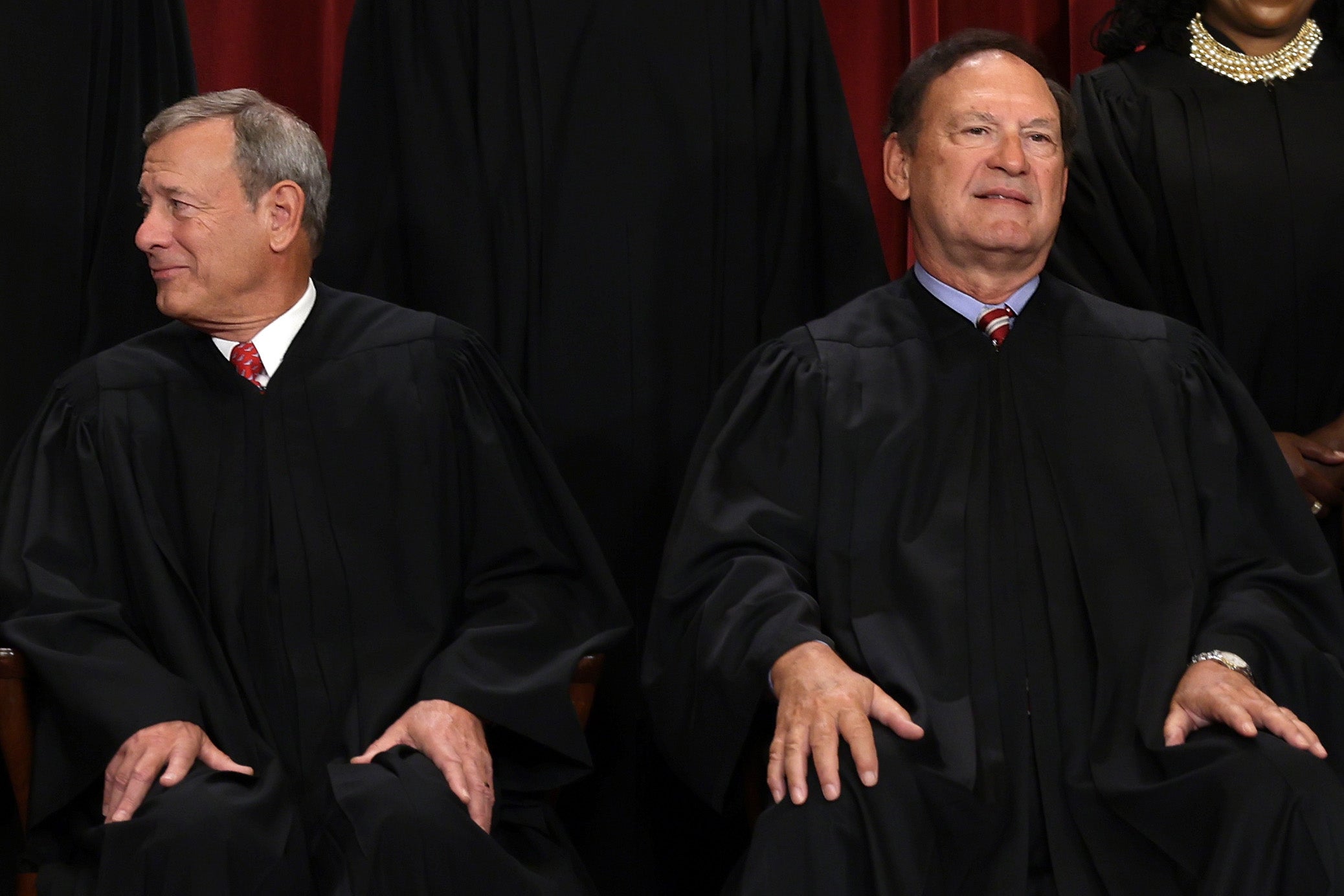Chief Justice dismisses Democratic senators’ request for meeting on Alito flag flap
‘Only on rare occasions in our Nation’s history has a sitting Chief Justice met with legislators,’ John Roberts writes
Supreme Court Chief Justice John Roberts rejected an invitation from two Democratic senators to discuss ethics on the court as well as the controversy surrounding Justice Samuel Alito and the controversial flags flown at his homes.
“I must respectfully decline your request for a meeting ... apart from ceremonial events, only on rare occasions in our Nation’s history has a sitting Chief Justice met with legislators,” he wrote. “Separation of powers concerns and the importance of preserving judicial independence counsel against such appearances.”
On Wednesday, Alito sent a letter to the senators as well as to House members telling them that he wouldn’t recuse himself from cases concerning former President Donald Trump and the January 6, 2021 Capitol riot.
Earlier this month, The New York Times reported that an upside-down American flag favored by election deniers was flown outside the home of Justice Alito in Alexandria, Virginia, in January 2021. The justice said his wife had flown the flag amid a neighborhood dispute.
Another flag used by Capitol rioters, known as “an appeal to heaven” flag, was seen outside Alito’s New Jersey beach house.
Alito wrote that he found that the flags, which he said had been flown by his wife, didn’t mean that he had to recuse himself. He noted that she had been unaware of the “appeal to heaven” flag’s connection to the insurrection.
Democratic Senators Dick Durbin and Sheldon Whitehouse wrote to Roberts a week ago to request the meeting and that Roberts take measures to push Alito to recuse himself from any cases reaching the Supreme Court that concern the January 6 riot or former President Donald Trump’s attempts to overturn the 2020 election.
Judge Roberts wrote to Durbin and Whitehouse that “individual Justices decide recusal issues,” meaning that it’s up to Alito to decide if he’ll recuse himself.

He added: “The format proposed - a meeting with leaders of only one party who have expressed an interest in matters currently pending before the Court - simply underscores that participating in such a meeting would be inadvisable.”
Alito is not alone in having rejected calls to recuse himself. Fellow conservative Justice Clarence Thomas has also refused to recuse himself from matters concerning the 2020 election after his wife Ginni Thomas backed efforts to overturn the results.
Not for the last half-century has public trust in the Supreme Court been this low.
The court is reviewing two cases connected to the Capitol riot, including whether Trump has immunity from prosecution on charges of election interference and charges against the rioters who took part in the insurrection.
Judicial ethics codes state that judges have to be independent and that they should avoid making political statements or sharing opinions on issues on which they may have to make rulings. The Supreme Court didn’t adopt a code of ethics until last year as it faced criticism over some justices accepting hitherto unknown free trips and gifts.
The code is not enforceable and the Senate Judiciary Committee last year approved legislation to place stricter ethics requirements on justices but Republicans have opposed such measures.
The Associated Press contributed to this report
Join our commenting forum
Join thought-provoking conversations, follow other Independent readers and see their replies
Comments
Bookmark popover
Removed from bookmarks